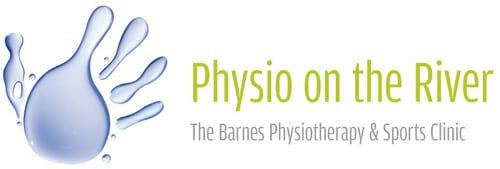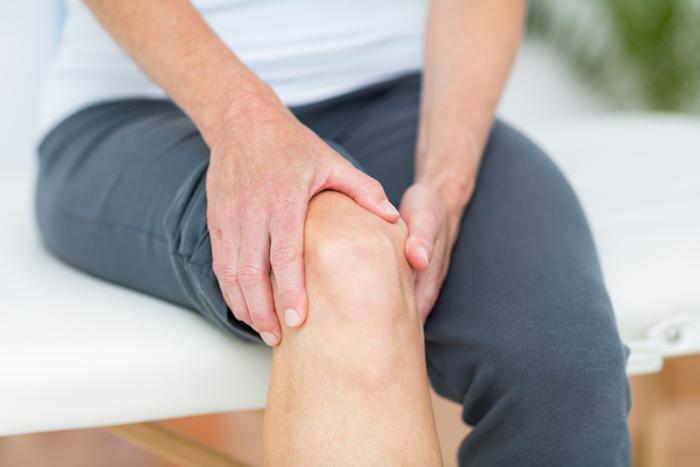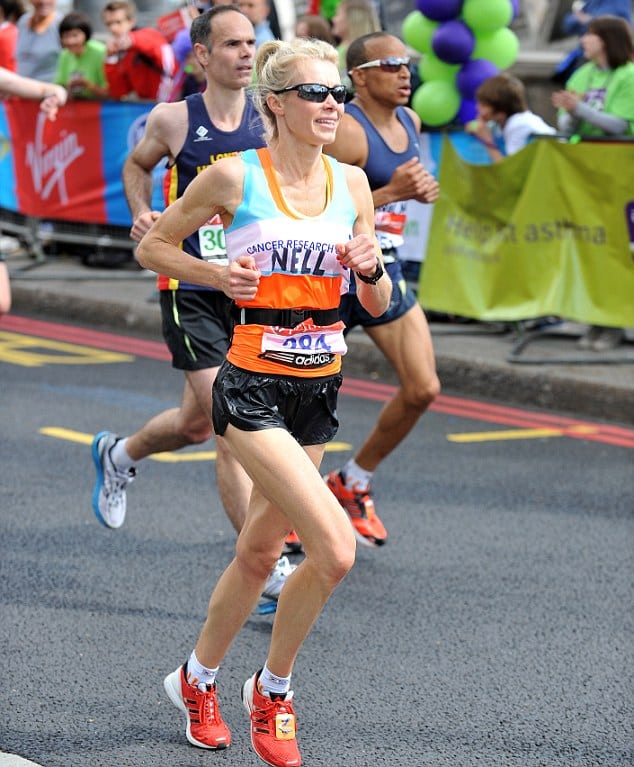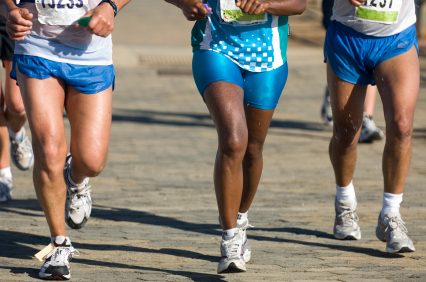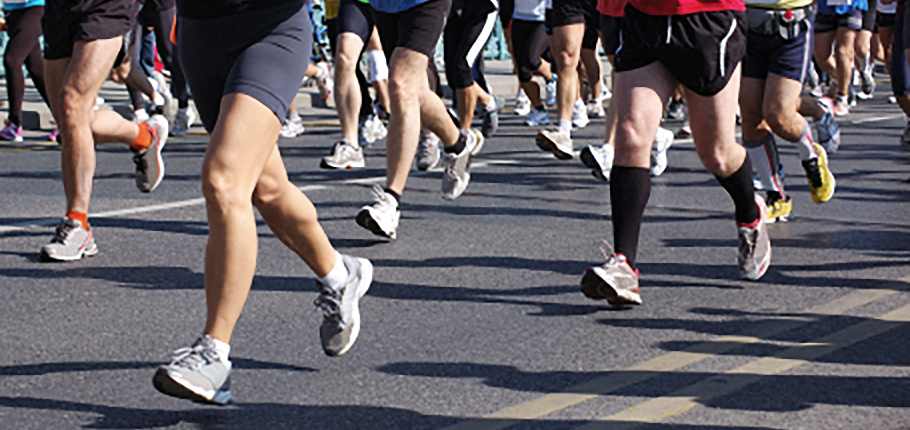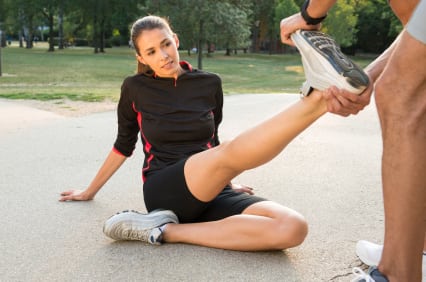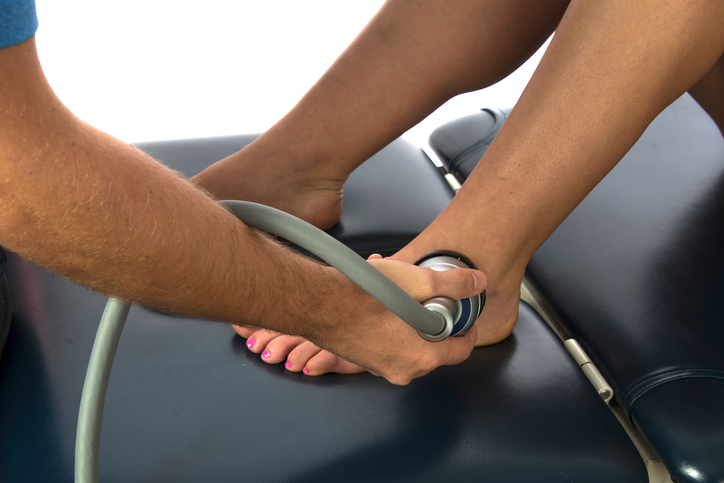Physiotherapy can help runners improve their personal best & overcome injury
If you are an experienced runner, it’s highly likely you’ve trained and competed whilst injured. Research has shown that runners often carry old “niggles” that have never been properly resolved. If this is you, it may be slowing you down or even be preventing you from running at all. Here’s how our Running Clinic could help.
Dave Burnett, who heads up the Running Clinic at Physio on the River, takes you through several key, common causes of injury and explains how we could help you reduce your risks, manage any ongoing issues and, at the same time, help improve your overall performance.
WHAT COULD HAVE CAUSED MY INJURY?
Seems a simple enough question and is the one we are most often asked by clients. In the absence of an acute trauma or a specific, isolated event, “overuse” is one of the most common causes of injury.
To be more specific overuse usually means “training load errors”. Simply put, if your training load (ie. the frequency, intensity, time & type of training) is higher than your tissues (eg. Achilles Tendon or Knee-cap Joint) can tolerate, you could get injured.
WHY HASN’T MY INJURY RESOLVED ITSELF YET?
Your ’tissue tolerance’ is related to several different factors and all of these can affect your ability to recover from an injury. For example:
- your age – we all recognise that we become less elastic and slower to recover as we get older
- genetics – some people just have ‘good genes’
- your general health and level of fitness
- any previous injuries you may have suffered
- your strength & flexibility
- biomechanics – the way we are built or the way we move
- and finally, your sleep patterns, general nutrition & your lifestyle
WHICH RUNNERS COULD BE AT A HIGHER RISK OF INJURY?
If you seem more prone to injury, you may fall into one of the following sub-groups of runners:
- Beginners with less than one year’s experience
- Runners with previous injuries (particularly in the first 3 months following the injury)
- Marathon runners who run more than 40 miles/ 65km per week
- Runners who rapidly increase their speed or distance
- Women with a low BMI or reduced bone density (Osteopenia or Osteoporosis) Source: JAMA, 2014
SO, HOW CAN MY TRAINING-LOAD AFFECT INJURY?
Various factors influence your ‘training load’, these may include:
- The nature of your weekly running programme – ie. the frequency, intensity, time and duration
- Any other exercise or strength and conditioning you may do on top of your running
- The nature of your running training is also a factor and some injuries are more commonly “volume-related” versus “pace-related”
HOW CAN I IMPROVE MY TISSUE TOLERANCE?
Improving your tissue tolerance will reduce your risk of injury. This can be achieved in a number of ways, including:
- Cross-Training – using a variety of types of exercise in your training eg. using swimming/cycling/cross-trainer
- Optimise or adapt your running style – the way you run will change the forces placed on your joints and muscles. Making small adaptations can often be effective in helping to solve ongoing niggles and can have a surprising impact on your overall economy-of-style and performance
- Optimise your footwear for your specific running biomechanics – this will help reduce load on the system (we have a podiatry specialist we can refer you to in-house)
- Taping can help offload your tissues so they have more tolerance to exercise
- Running Specific Strength & Conditioning: it is now widely accepted that running performance can be improved by combining endurance training with explosive, strength training. Adapting common gym-style strength work to make your programme specific to your running demands will help you improve your tissue tolerance more quickly (Dave can create a PT programme specifically for you to follow, both with him in our studio and to follow-up at home)
- Maximise your nutrition, hydration and sleep: these will undoubtedly help performance, recovery and tissue repair (we have a in-house nutrition specialist we can refer you to)
HOW CAN A PHYSIOTHERAPIST HELP?
Our team of physiotherapists can help you to recover from injuries which are stopping you from running. They can also work to resolve those ongoing niggles and give advice that will reduce your risk of re-injury.
Our physios are specialists at assessing the way you move and identifying possible causes of injury. Combining clinical skills with a video gait analysis the team can offer you a very thorough screening. From this baseline of information they can create a tailor-made plan of action. If you attend our Running Clinic, options include:
- A Standard 60 minute Running Assessment
This aims to establish the specific details of your running history by exploring your training programme, offers coaching advice and helps you to define your goals for up-and-coming competitions - A physical screening
To identify key, biomechanical factors related to running (for example, joint & muscle flexibility tests, plus lower limb strength and muscle control measurements)* - Treadmill analysis
An analysis of your running using Hi-Speed video, plus a report of your video analysis findings* - Exercise programme
An exercise plan to help facilitate your rehabilitation and strengthen key areas
*If your Screening Assessment and/or running analysis identifies a specific injury requiring treatment then we may advise a course of physiotherapy either with Dave or another member of the team, to follow in parallel with the Running Clinic options above.
